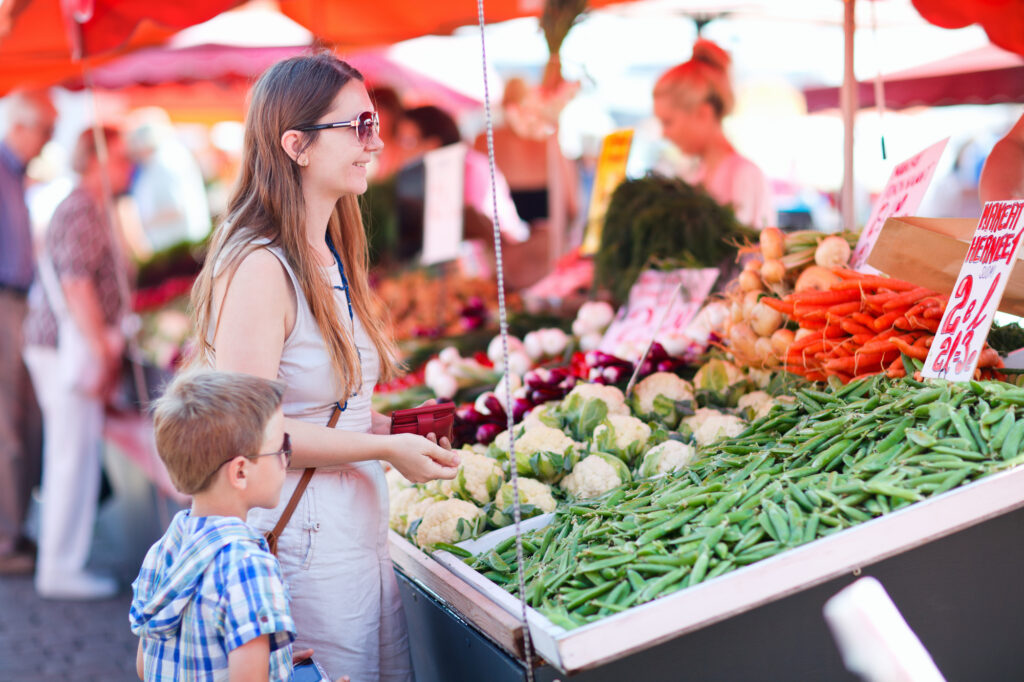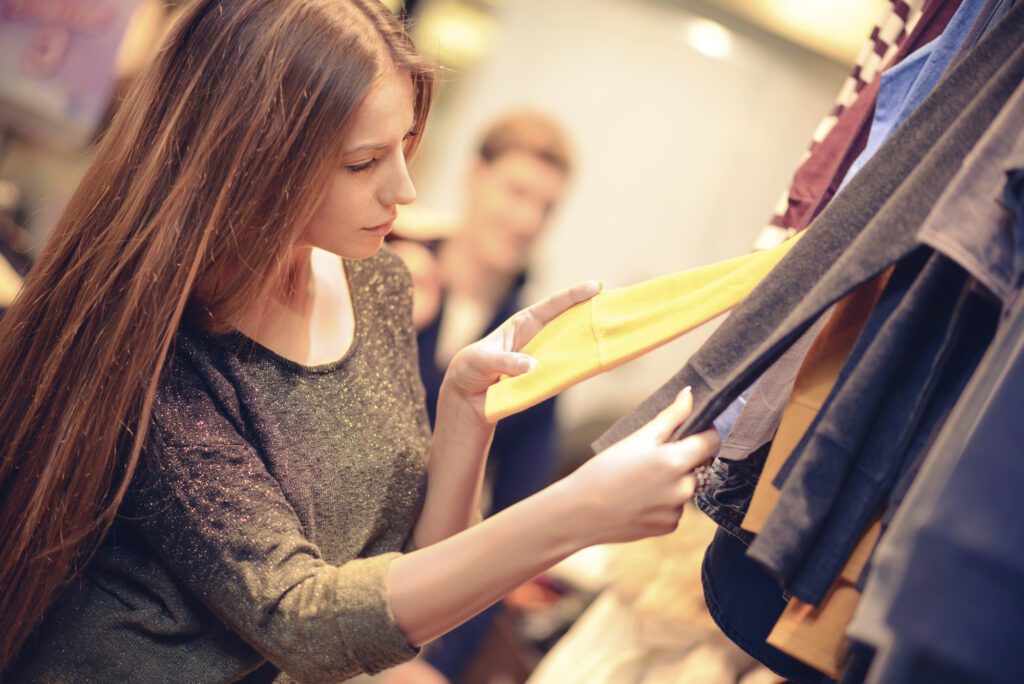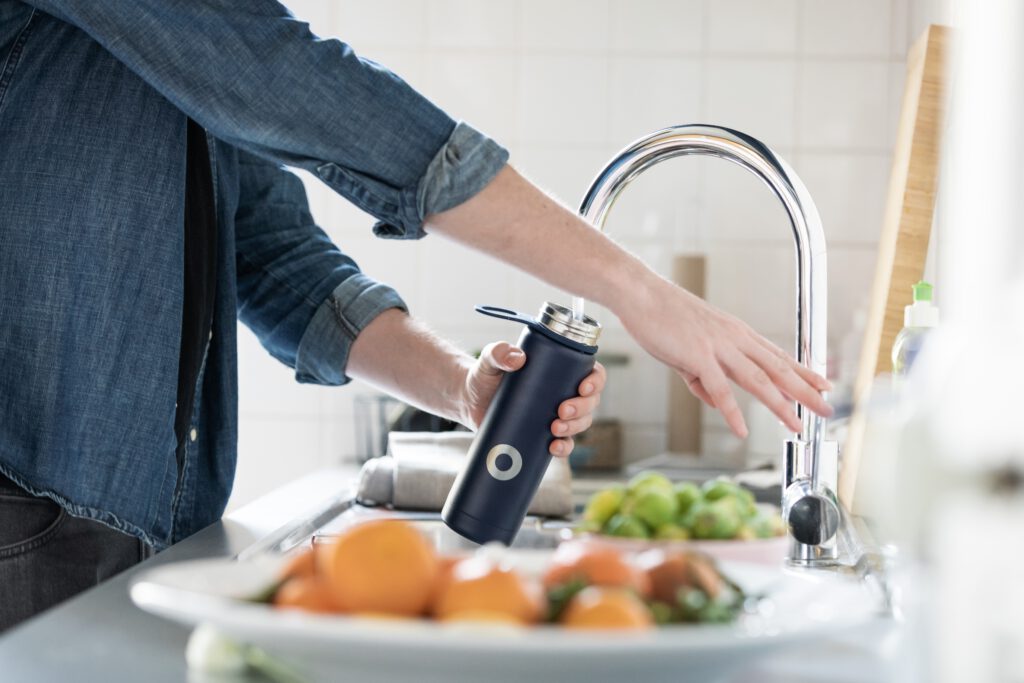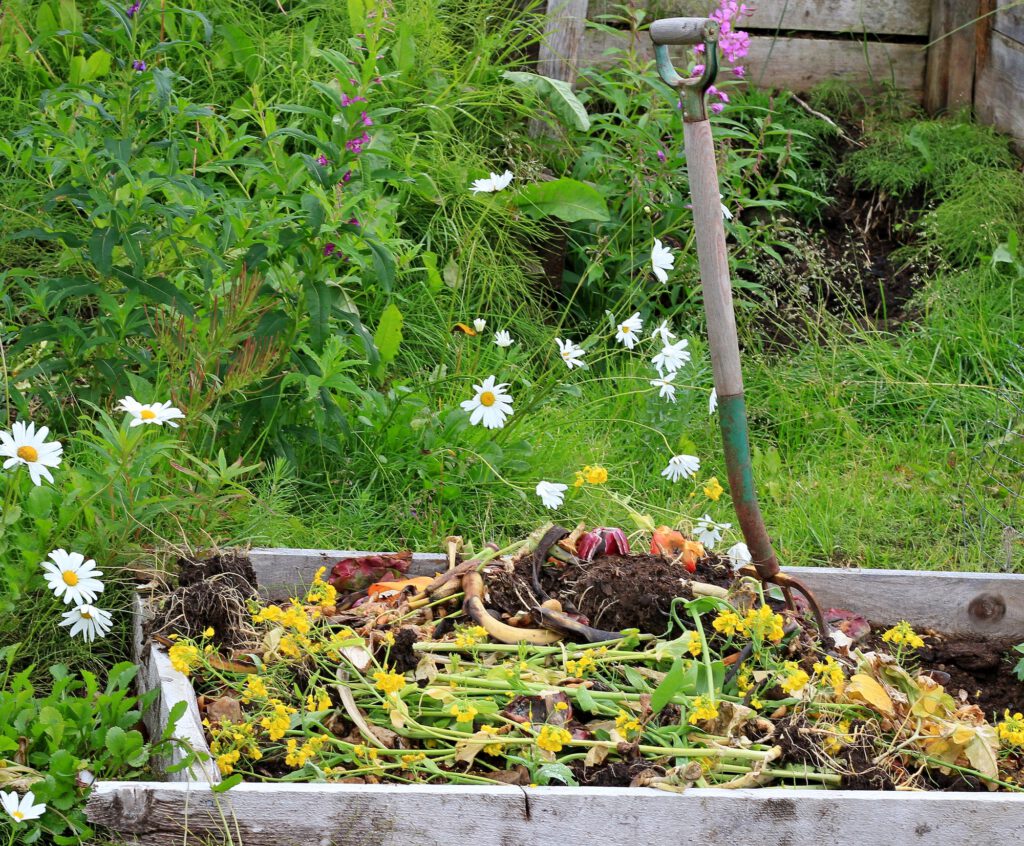Living waste-free isn’t just a trend for eccentric, tote-bag-wearing vegans. 🌱 It’s a practice that can improve the well-being of the planet and our own quality of life. Going waste-free in the Netherlands is very doable — let’s talk about it!
Living in the Netherlands, we often see great efforts towards sustainability: renewable energy, recycling bins all over the place, banning single-use plastic, and people cycling everywhere.
However, the country isn’t perfect, and there are always more things we can do to produce less waste. Here are 11 tips for reducing our waste in the Netherlands (thank us later!):
1. Buy your fruit and veg from grocers
Isn’t it just so easy to buy your fruits and veggies from the supermarket and not think twice about it?
However, shopping at the grocery store can produce plastic and packaging waste. A better idea is to shop for your produce at the local grocers.

You can find them in your city centre at the open-air markets, which often take place two days a week.
You can also buy cheese, meats, bread, and a lot more there! 🧀
Buying foods from your local grocers is not only cheaper than buying from the supermarket, but it also produces less waste because less packaging is used.
2. Refill essential items at bulk stores
Did you know that most of your toiletry and household items can be refilled at bulk stores without producing any waste? 😲 Ja, dat is waar (that’s true)!
There are several zero-waste stores in the Netherlands, most of which are in bigger cities like Amsterdam, Rotterdam, and Utrecht.
If you don’t live in any of these cities, no problem! Many zero-waste stores also make deliveries to your home.
And get this: you give a small deposit when you order and then get it back on your next delivery when you return the container. Isn’t that cool? 😎
3. Buy your clothes from thrift stores
Forget fast fashion! We all know that clothing stores like H&M, Zara, and Pull & Bear have some pretty trendy and affordable items.
However, despite these low prices, fast fashion has a high environmental cost. Instead of buying from these stores, you can thrift your clothes instead! 👚
Thrifting your clothes is environmentally friendly and saves clothes from going into a landfill.
Many cities in the Netherlands have vintage or second-hand clothing stores that you can check out!

However, if there isn’t a vintage store in your area — or you just love to online shop — worry not! There are several apps for buying (and selling) clothes second-hand.
All you have to do is make the purchase and the seller will have it posted to your nearest pick-up point or directly to your door!
You can also check out Swapshops, where you can bring in a maximum of five pieces of clothing in exchange for some new ones! You do have to pay a small service fee, but it’s so worth it! 😍
Vintage kilo sales are also very popular in the Netherlands. Basically, what you pay is determined by the weight of your haul (weight x kilo price = what you pay). 🛍
4. Always carry a tote bag
If you don’t have a canvas tote bag yet, what are you doing? You need to get one ASAP! Not only are they totally adorable, but tote bags last longer and are far better for the planet than plastic bags.
Plus, paying extra for bags at the supermarket just isn’t the Dutch way. 😜 You can also carry a backpack or really any kind of bag. Just stay away from plastic! 🙅♀️
5. Get an insulated bottle
Ditch the plastic bottles which are TERRIBLE for the environment, you should invest in a reusable bottle!
There are so many kinds to choose from, and you can customise them however you want (we like to add stickers to our bottles 🙊).

We recommend getting an insulated water bottle so that you can keep your drink warm/cold for a long time. 🤗
6. Skip buying a car
If you are a student or don’t make too much money this might be a no-brainer, but having a car isn’t great for the environment.
Lucky us, the Dutch have amazing public transportation options: trains going every 15 minutes, buses, trams, etc. All of which you can take with a personal OV chip card.
READ MORE | 19 things the Dutch did to make cycling easy and attractive
But the best way to travel in the Netherlands is, obviously, by bike! Biking everywhere is super kind to the environment.
If you don’t have a bike yet, you can always rent a bike from OV fiets or Swapfiets. 🚲
Car-sharing is also becoming more popular in the Netherlands. Sharing a car is cost-effective and good for the environment.
Plus, wouldn’t it be nice to have fewer cars on the road during rush hour? 😡
7. Make the most out of your city’s recycling service
Most Dutch cities have bins for you to recycle glass, bottles, and paper. While it may feel wrong, plastic can actually be thrown into the regular rubbish in the Netherlands as it is automatically sorted later.
However, according to studies, only around 40% of Dutch household and industrial waste is actually recycled.
So if you really want to do good for the environment — we’ll say it again — ditch the plastic.
8. Go paperless
Going paperless can conserve a lot of paper waste. Some ways to reduce paper usage are:
- Getting digital versions of books
- Switching to digital banking (many banks offer paperless banking now)
- Taking digital notes (laptop, tablet)

9. Try to buy things in person
We all know that online shopping is fun, and for a long time, it was our only option because of the coronavirus pandemic. However, buying things online can produce unnecessary waste from excessive packaging and deliveries.
When you shop in person, you support your local businesses — and you’re reducing your carbon footprint.
In addition, you can get your item immediately (no waiting for days for your package, hurrah!). 🙌
10. Make your own compost
Are you a plant lover? You can reduce your food waste by making your own compost at home!
Composting is when you put food waste and other kinds of waste together to make organic material that helps plants grow.
Making your own compost can reduce methane production and keep waste out of landfills. Plus, it is really healthy for your plantjes. 🌱
Composts are made of three ingredients: browns, greens, and water. There should be an equal amount of browns and greens in your compost.
What you need:
- Browns: dead leaves, branches, and twigs
- Greens: grass clippings, vegetable waste, fruit scraps, coffee grounds
- Water

Some things you can compost:
- 🍎 Fruits and vegetables (and the scraps)
- 🥚 Eggshells
- ☕ Coffee grounds and filters
- 🍵 Teabags
- 🍃 Leaves
- 🌿 Houseplants
- 📦 Cardboard
- 🧾 Paper
- 📰 Shredded newspaper
READ MORE | Worm hotels in the Netherlands: an eco-friendly approach to community building
11. Carry a reusable coffee cup
Carrying a reusable coffee cup is a great way to reduce waste. Not only are they really cute, but most reusable cups are really convenient and compact to carry around with you.
Also, if you want to be a zero-waste queen, you can carry a reusable straw and reusable containers.
And who said this has to be restricted to coffee? Instead of ordering food to your house, you can pick up your food and ask them to put it in reusable containers.
This is a super eco-friendly way to get your take-out fix!
We probably won’t be as cool as Greta Thunberg, but we can certainly try. 😉 Adding these little changes to the way you live your daily life can help you to live more consciously and sustainably. 🌍
Which waste-free method will you try out? Let us know in the comments below!




